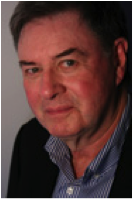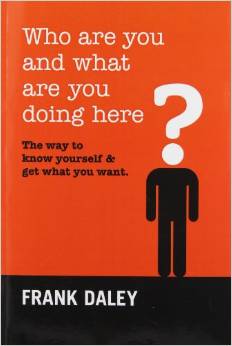If you don’t know yourself, you will never land in the right job.
How could you?
You won‘t have the necessary information to make the best decisions about getting the education, training and experience for a career that suits you.
Let’s apply that premise to the specific job of “blogger.” I say, ‘’job” although most bloggers do not make much if any money.
Given that fact, let’s say you want to use your blog to write a book. With a Kindle e-book or even a print book, you have a better chance for financial gain.
What do you want to write about on your blog that you can turn into a book?
Unless you are just blogging for the hell of it, writing personally about anything that comes into your head, and you don’t care to make money or build a business, you need to select a field, a topic and a niche.
Either you are going to be a generalist or focus narrowly (to begin anyway) on a specific topic. You can throw darts at a list of topics, pursue what appears to be trending, or discover inside yourself the topic that offers you the best way to express your talents, gifts and abilities as a knowledgeable writer.
Let’s examine your possibilities through a prism of passion, subject knowledge and self-knowledge.
Passion
You can choose a topic about which you know nothing, a little, a good deal, or a lot. If you choose a topic about which you know little or nothing, enter the field and take others like you on your learning journey. That works for some bloggers, although gradually your strategy will change as you become more knowledgeable—when you do know a lot.
It’s smart to choose a topic you’re passionate about. Your passion fuels your reading and research. If you are not passionate about the subject, you won’t do this work and research, and you will not be aware of the myriad things that swim by in your consciousness that a passionate person sees.
The proviso here is that your passion should have market value. It should translate into products or services that people want and need.
Can you write about something you are not passionate about? Sure. Reporters do it all the time, but only a few reporters ever write books and then only on subjects they have come to know extremely well.
Subject Knowledge
Some people say you don’t have to be an expert in your subject to be successful at writing a book, that you can present as an expert as long as you know more than the average person about your subject. It is true that you can find clients and readers below your knowledge level and help them along (as you grow too).
It’s better by far to know a lot about your subject, especially if you are writing a book and not just periodical blogs on the subject. You can be a student of a subject, a teacher, expert, authority, or a master. I received an M.A. in Theater (Northwestern University, Chicago), but at the time really understood little about theater.)
How do you combine passion and subject knowledge and turn it into a book? How do you know what subject to choose?
You do it through self-knowledge.
Self-Knowledge
If you know your talents, gifts, skills, and abilities, you easily can choose what arena to enter or what topics to write about. Think about selecting a college program. For people who know themselves the question of which program to enter never arises. But most young people do not know who they are and what they want so 70 percent of students choose the wrong program. They get disillusioned, depressed and drop out or switch programs, which causes them to lose a year (or more) in the process.
The same thing happens with most people, young or old, who choose a career haphazardly and find themselves trapped in a job they hate.
So it is with writing a book from a blog. Admittedly, this is on a minor scale compared with college programs or career choices, but it the same problem. If you don’t choose your topic wisely, you will become disheartened and quickly run out of energy, confidence and things to say.
You must choose your blog and book subject accurately through self-knowledge.
If you were fortunate enough to have your talents and interests recognized and nurtured by parents or guardians, you already know your fields of intense interest. You have a good deal of self-knowledge.
Unfortunately, most people did not have this experience. The majority of us have to discover our way alone.
It can be done and you do not have to be a PhD, philosopher or genius to do it. Most people think of self-knowledge (if they think of it at all) as too difficult, complex and abstract.
It is not; moreover, it is fascinating and fun. (It’s all about YOU, after all!)
In order to know yourself, there are many questions to ask and answer about your self. It takes some time, effort and truth-telling but it is not difficult.
- What do you want?
- What do you need?
- What are you willing to do to get what you want and need?
- What are you afraid of?
These general questions lead to many more specific ones. But when you answer them rigorously you find exhilaration about yourself and your life choices that you have never had before.
You can pose and answer these questions now, or as you get older and wiser. One way or another—or at some time or another—they will arise and need to be addressed.
I’d suggest answering them now. When you do, the current questions: What shall I blog about? And what blog post series should I transform into a book (or what book should I blog) will be answered so fast you will be astonished.
About the Author
 Frank Daley is the founder and director of Self-Knowledge College. His core book is Who Are You And What Are You Doing Here? The Way To Know Yourself And Get What You Want.
Frank Daley is the founder and director of Self-Knowledge College. His core book is Who Are You And What Are You Doing Here? The Way To Know Yourself And Get What You Want.
His blog is The Daley Post.
To get his book Four Questions to Change Your Life! FREE, visit Self-Knowledge College.



Leave a Reply